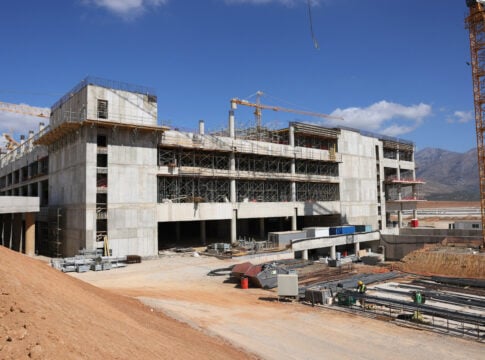The final draft of the 2024 budget that will be submitted to the Parliament on Tuesday will include high growth rates, higher income through increases in wages, pensions and a series of benefits, totaling 1.6 billion euros, as well as an increase in health and education spending.
In addition, the finance ministry is expected to maintain the reduced VAT (13%) on tourism and transport. Two sectors that contribute decisively to the strengthening of the country’s competitiveness (compared to other markets) and the state’s revenues.
“The Greek economy is certain to meet a 1.1% of GDP primary surplus target by the end of the year, National Economy and Finance Minister Kostis Hatzidakis said in an interview with the Athens-Macedonian News Agency. He also revealed that in the final draft of the budget, which is to be tabled on Tuesday, there are significant changes for the better as regards investments (now seen to grow by 15.1% versus the previous forecast of 12.1%) and a big increase in spending on health and education.
Asked about the changes in the taxation of freelance, self-employed workers, he said there might be some changes following a period of public consultation and that all comments will be examined and considered but that these will be minor “as the state cannot continue to ‘bless’ tax evasion.”
Benefits of 1.6 billion euros and tax reliefs of 2.13 billion euros are included in the 2024 budget. These include:
- The new salary for civil servants who will receive an increase of 70 euros in the minimum salary as of January 2024, a higher child benefit from 20 to 50 euros but also an indirect increase from 6.4 to 18.3 euros as a result of the increase of the tax-free threshold by 1,000 euros for families with children.
- The increase in pensions by 3%.
- The “unfreezing” of the three-year salary increase in the private sector from the new year.
- The increase in social benefits as well as the maternity allowance for professionals and farmers, which will reach up to 630 euros per month.
- The 10% reduction of ENFIA for those who have insured their property against natural disasters (earthquake, fire, floods).














